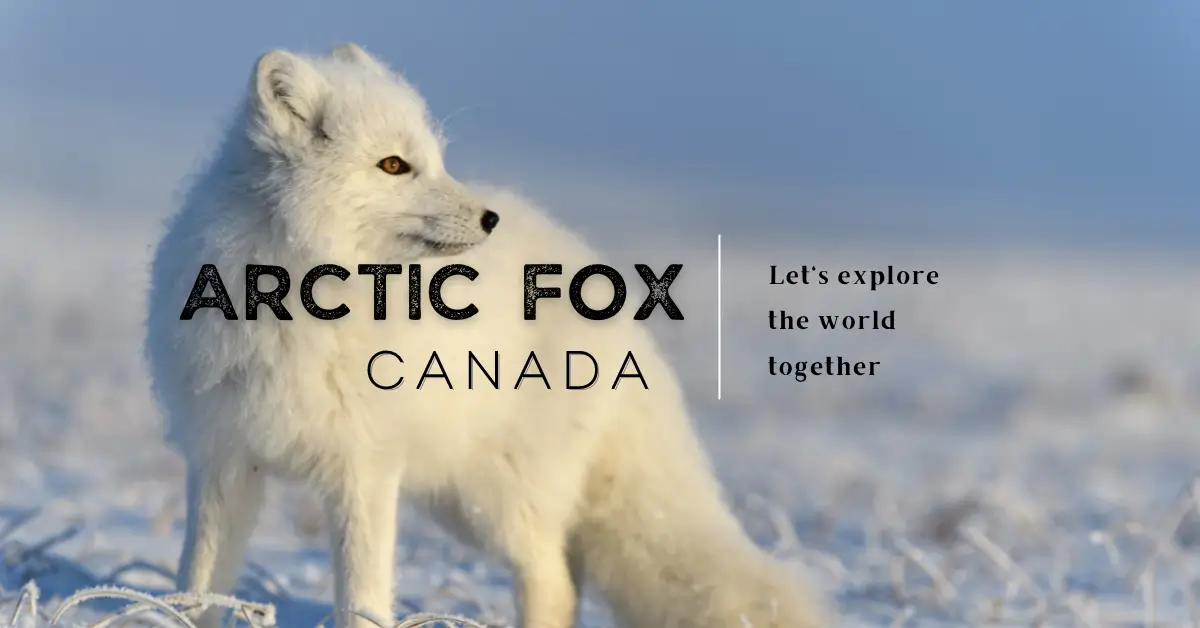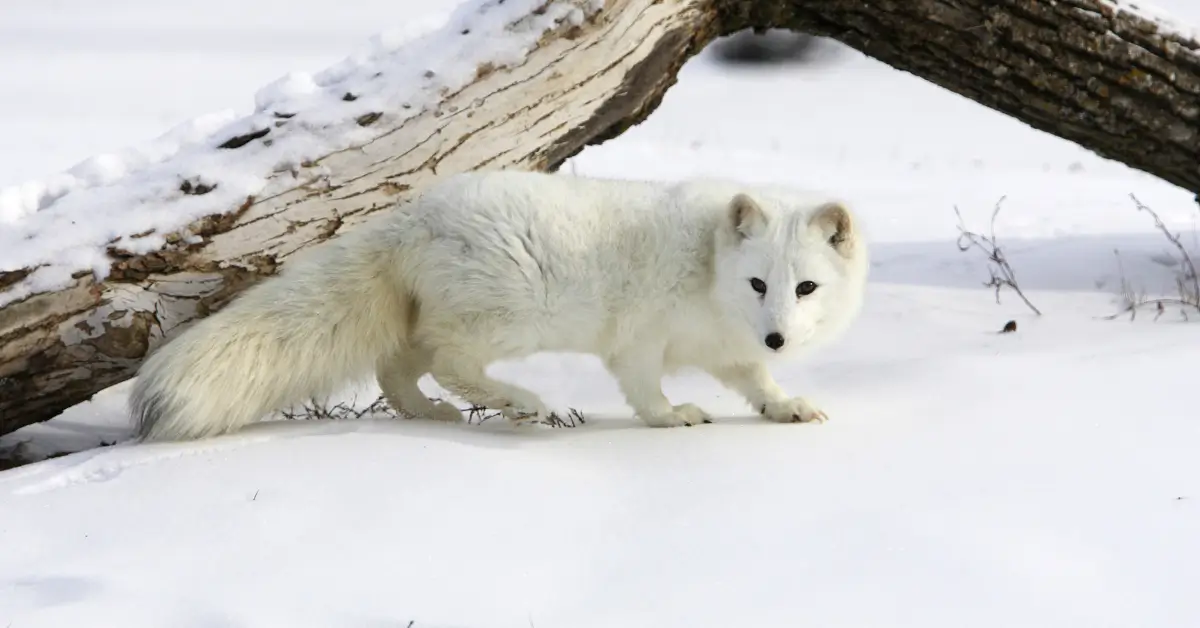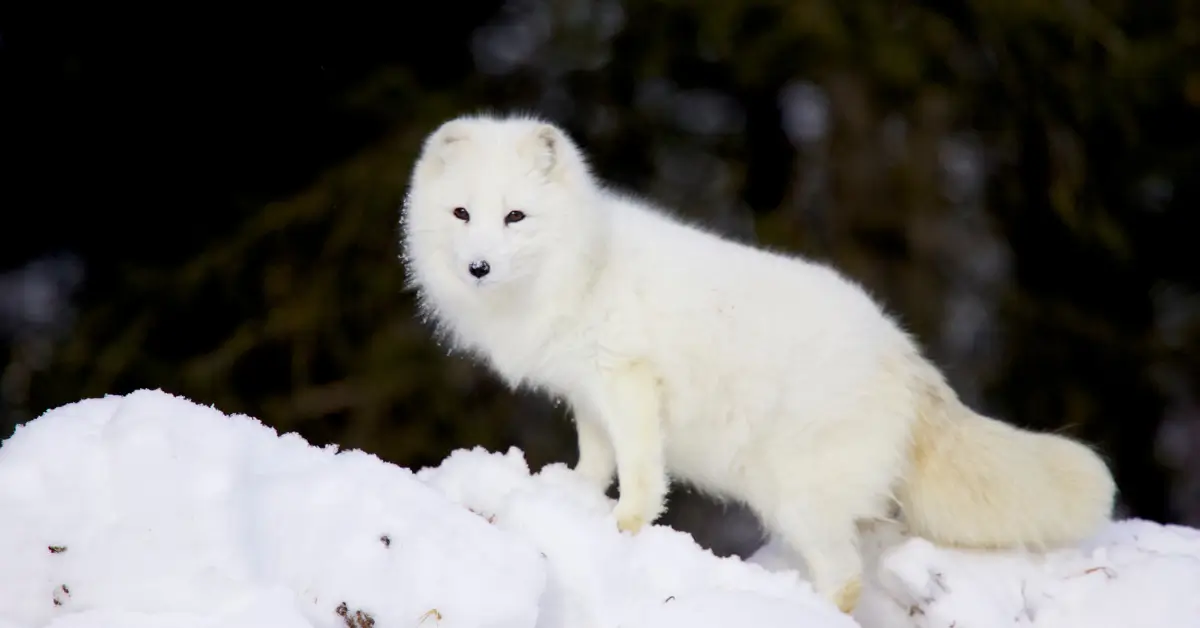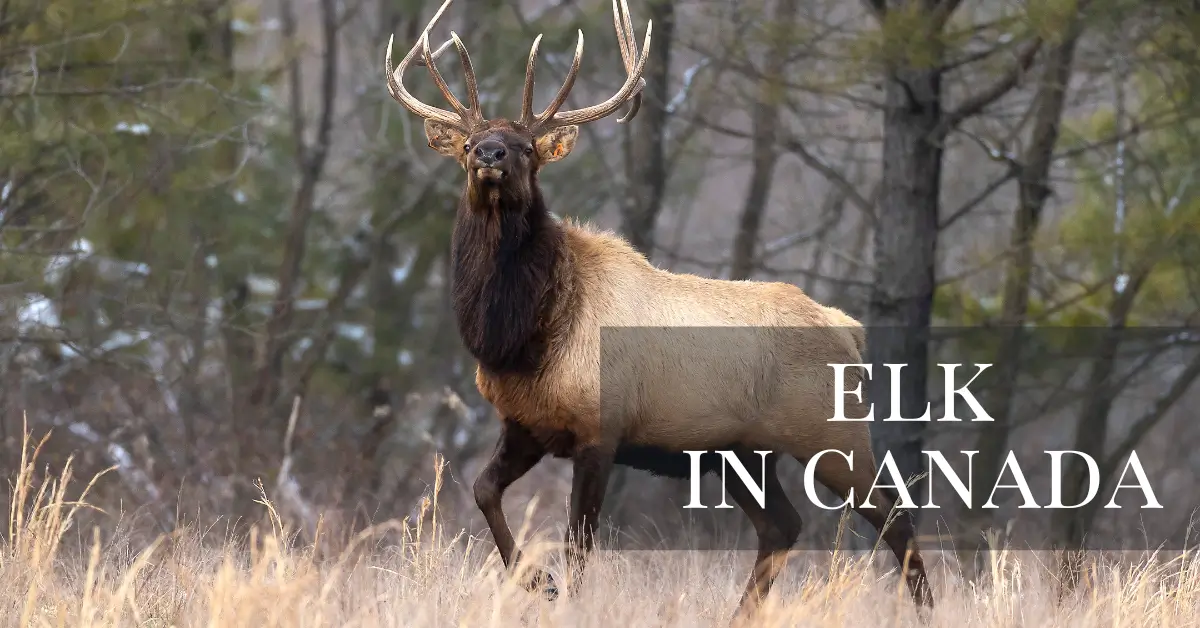Arctic foxes are small omnivores belonging to the family of dogs living in icy areas, They have furry paws that act like snowshoes, helping them walk on the snow and ice. In the summer, the arctic fox’s fur becomes brown or gray to blend in with the tundra. These foxes live in family groups with a male, female, and their pups.
These animals inhabit the northern areas of the Canadian territory and beautify the Canadian regions with their attractive features. These animals are the symbol of the northern and snowy areas’ beauty.
Physical Characteristics and Features
These animals resemble foxes and dogs, and their physical features are quite catchy for visitors.
| Features | Relevant Information |
| Scientific Name | Vulpes lagopus |
| Life Span | Ranges between 3 – 4 years |
| Diet | Small rodents, Birds, Eggs, Ground Squirrels, Berries and Killed Seals |
| Average Height | The range is from 25 – 30 cm |
| Average Weight | Ranges between 2.5 – 9 kg for males and 1.4 – 3.2 kg for females |
| Other Names | White fox, Polar fox, or Small fox |
| Habitat | Dens, Tundra habitat near rocky shores, Packed ice in winters |
| Status of specie | Not endangered |
Here is a list of some attractive facts that can force you to plan a visit to see this beautiful animal;
-
Masters of Camouflage
Arctic foxes are experts at blending into their snowy surroundings because of their thick, insulating fur that turns white in winter and grayish-brown in summer.
-
Tiny but Mighty
Arctic foxes are capable of hunting and killing prey much larger than themselves, such as adult caribou and muskoxen even with this small size.
-
Adaptable Scavengers
They are skilled scavengers and feed on everything from seal carcasses to human garbage, allowing them to survive in harsh arctic environments.
-
Earth’s Northernmost Land Mammal
The Arctic fox is the only land mammal found throughout the entire Arctic region, including the northernmost parts of Canada.
-
Cozy Den Builders
These animals build complex den systems with multiple entrances and tunnels and insulate them with vegetation and their fur.
-
Cunning Snow Hunters
They make use of their keen hearing and sense of smell to locate prey beneath the snow.
-
Survival of the Fittest
Only the strongest arctic fox pups survive their first few months because mortality rates often exceed 50% due to harsh weather conditions and predation.
-
Exceptional Swimmers
Despite their small size, arctic foxes are excellent swimmers, capable of crossing large stretches of water and even swimming beneath the ice.
-
Night Owls of the Arctic
Arctic foxes are primarily night lovers, hunting and scavenging during the night when their prey is most active.
-
Intelligent Food Caching
Arctic foxes gather excess food in underground burrows or beneath rocks and snow which allows them to survive periods of scarcity.
Sightseeing of Arctic Fox in Canada
They are snow-loving animals and are born to adapt to chilled conditions in Canada like the Arctic becoming the source of tourist attraction in these areas.
| Direction of the Country | Places Where Arctic Foxes are Found |
| Northern Side | Yukon, Nunavut |
| Eastern Side | Northern Labrador, Newfoundland, and Quebec |
| Central Side | Northern Manitoba |
These animals beautify the northern areas of Canada and have become the symbol of beauty in these regions.
| Season | Months for Sightseeing |
| Autumn | Late October to November |
| Summers and Late Summers | June to September |
| Spring | April to May |








